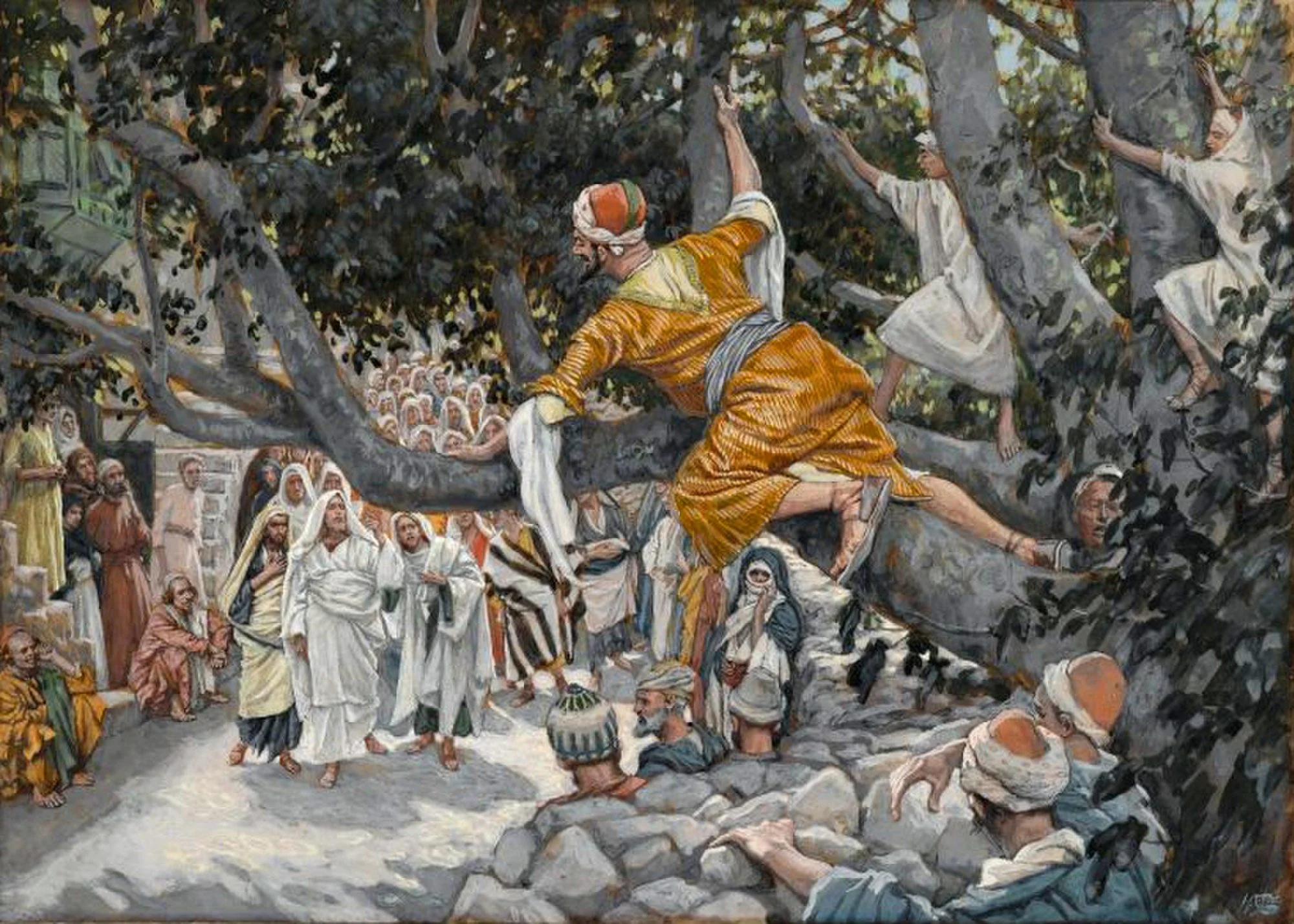Luke 19:1-10
1 He entered Jericho and was passing through it. 2 A man was there named Zacchaeus; he was a chief tax collector and was rich. 3 He was trying to see who Jesus was, but on account of the crowd he could not, because he was short in stature. 4 So he ran ahead and climbed a sycamore tree to see him, because he was going to pass that way. 5 When Jesus came to the place, he looked up and said to him, “Zacchaeus, hurry and come down; for I must stay at your house today.” 6 So he hurried down and was happy to welcome him.
7 All who saw it began to grumble and said, “He has gone to be the guest of one who is a sinner.” 8 Zacchaeus stood there and said to the Lord, “Look, half of my possessions, Lord, I will give to the poor; and if I have defrauded anyone of anything, I will pay back four times as much.” 9 Then Jesus said to him, “Today salvation has come to this house, because he too is a son of Abraham. 10 For the Son of Man came to seek out and to save the lost.”
Saving the Lost
At the beginning of His ascent to Jerusalem, Jesus was denied entrance to Samaria, the disciples then wanted to bring fire from heaven to punish them. But Jesus said to them, "Take another way" Luke 9:51-55.
With His disciples, He took another way. He used the Jordan Valley road that passes through Jericho, not far from the Baptismal site to the east, and the Mount of Temptations to the west. A few miles south is Qumran, the headquarters of the Essenes who expected the Messiah to come from their community and claimed to be the only Sons of Light on earth.
Jericho, the green oasis in the Judean desert, was a commercially rich town and therefore a tax-collecting quarry for the Romans. Taxes were collected for the Roman authority by collectors known as publicans. They were hated by the local population because they were working for the Roman occupation and because they exaggerated people's tax bills, keeping any excess as personal profit. This is how they got their wealth.
They had four basic types of taxation: cattle tax, land tax, customs, and tax on the profits of any profession.
Jesus passed through Jericho, and a chief tax collector wanted to see who this man was. He knew that he was despised by the locals and might be driven away. His short stature might have made him unable to see above the crowd that hates him. To be safe and confident, he climbed a Sycamore tree. He was surprised to hear a voice asking him to get down and to host the person he wanted to see!
Zacchaeus, the chief tax collector, was seen by Jesus before he saw Him.This is the first time we see Jesus asking somebody to host Him. He is going to the house of a man who is detested by the people of his town and considered a sinner.
What can we learn from Zacchaeus hosting Jesus in Jericho?
Distinguishing between survival and life, as a Roman clerk, Zacchaeus was looking for an easy daily survival, but once he realized that life is more important than survival, he returned to himself and started to look for "the way, the truth and the life." He wanted to see who this Jesus is!
Jesus welcomed him before he welcomed Jesus.
At home, Zacchaeus gave us the best model of humility a penitent is expected to show. He confessed his sins in Jesus' Presence and that of His companions. He was willing to give half of his wealth to the poor (v. 8). Giving to the poor is investing in eternal life.
He was willing to make amends for the injustices he committed four times over (v. 8).
We still remember the Publican from last week's message praying at the Temple, "Lord, I am a sinner, have mercy." Zacchaeus also confessed that he is a sinner and the Lord had mercy. "Today salvation has come to this house" (v. 9).
"The Son of Man came to seek and save the lost" (v. 10).
Let us reflect seriously on our personal prayers and take these publicans as a model of looking for life beyond survival. Approach God with humility and real confession of our sins. Be genuinely prepared to atone for sins to the extent we have caused harm to others and to those we have offended.
"If we say that we have no sin, we deceive ourselves, and the truth is not in us. If we confess our sins, he is faithful and just to forgive our sins, and to cleanse us from our unrighteousness" 1 John 1:8-9. Thanks to His mercy, we will be forgiven and justified.

